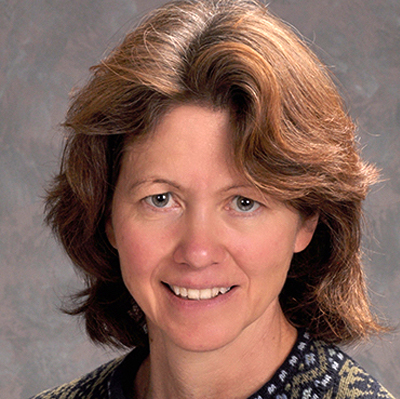
Leading statewide outreach supporting access to healthy food for all, Marcia Ostrom is the new director of the Washington State University Food Systems Program.
Founder of the WSU Small Farms Program, which she led for 15 years, and a 21-year WSU faculty member, Ostrom took on directorship March 16, 2022.
“The director’s role is an incredible opportunity to lead efforts to build positive change within our institution and across Washington state,” Ostrom said.
WSU Food Systems offers multi-disciplinary education and research to support regional food systems development from farm to table. Working with partner organizations and communities, the program fosters successful farm businesses, promotes better processing, distribution, and sustainable practices, and educates for a more secure, economically vibrant, and equitable regional food system.
The program was originally created as part of the Washington Safe Food Initiative in response to public requests for expanded WSU research and education aimed at socially disadvantaged farmers, sustainable and organic agriculture, and community food security.
“It is very exciting to see how far this program has come since the original Safe Food Legislation was passed in 1999,” Ostrom said. “Our talented staff and so many of our colleagues, partner organizations, and members of the public have contributed their ideas, hard work, and tenacity to get this program where it is today.”
Ostrom is an associate professor in the WSU School of the Environment and an Extension specialist in sustainable food and farming systems, leading outreach to diverse food and farming communities in Washington. She replaces the former director, Laura Lewis, who led the program from 2017 to 2022.
“Having been there from the Food Systems program’s very beginnings, Dr. Ostrom has a unique perspective on its mission, impact, and importance to the farms and people of Washington,” said Vicki McCracken, assistant dean and director of WSU Extension. “The WSU Extension community and CAHNRS are very excited about the experienced leadership she brings, as well as her involvement in sustainability across teaching, research, and extension. I also extend my thanks to Dr. Lewis for her important work across four years in support of WSU Food Systems.”
“Dr. Lewis was a dynamic leader and a prolific grant-writer and developed an extensive funding base, as well as strong partnerships with other organizations across the state. She has been a leader in serving BIPOC food and farming communities,” Ostrom said.
As director, Ostrom aims to solidify grant-funded projects and administrative support systems. She also wants to draw on the statewide food systems team and an interdisciplinary steering committee to review and rethink program priorities and directions based on what the team has learned across the pandemic.
“While this was already a problem, we are seeing growing disparities in access to healthy foods across communities and continued struggles to ensure the viability of small and mid-sized farming and food businesses,” Ostrom said.
Responding to citizen requests for expanded sustainable food and farming programs, Ostrom was recruited to WSU in 2001 to establish the Small Farms Program, the foundation program that became WSU Food Systems. She went on to launch community-based farming and food systems education, academic courses on agroecology and sustainable food systems, and applied research on ways to improve the viability of small and mid-sized farm and food enterprises.
Ostrom also led work that developed the program’s vision to create more inclusive and equitable access to land grant university resources for underserved farmers and community food system stakeholders. The Food Systems Hub, the Washington Food and Farm Finder, Cascadia Grains, and the program’s statewide sustainable farming education programs reflect this vision of inclusive community engagement.
A teacher, researcher, and adviser in sustainable agriculture, agroecology, food systems, and extension, Ostrom’s interdisciplinary work builds sustainability and equity of regional food and farming systems. She established the bilingual Washington Cultivating Success Program, the Immigrants in Agriculture Program, and the WSU/Tilth Farm Walk Program, and co-leads the Washington Coming Together for Racial Understanding (CTRU) Program. Many of her graduate students have gone on to pursue extension careers.
Ostrom holds a doctorate in environmental studies from the University of Wisconsin-Madison, a master’s degree in development sociology from Cornell University, and a bachelor’s degree in biology and anthropology from Harvard University.






